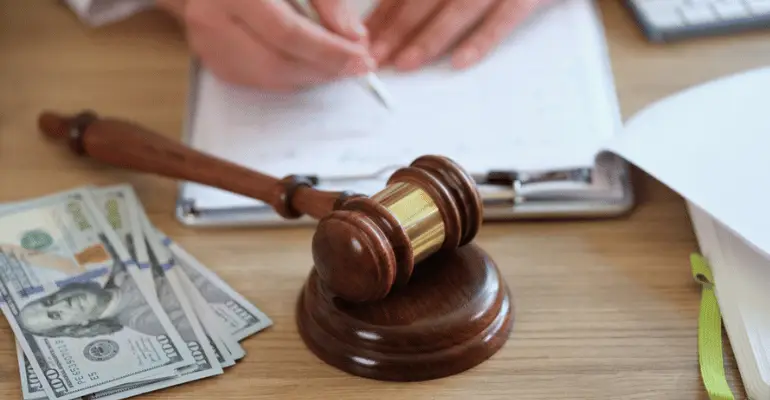Laid Off vs. Fired: What Is the Difference?

Whether you were laid off, fired, or furloughed, clarifying the definitions can significantly impact your finances, career, and even your family.
What Is the Difference Between A Layoff and Being Fired?
Employment terminology may sound the same but mean something completely different. What is the difference between laid off and fired? It depends on whose fault it is and what benefits or compensation are available after the employee no longer has a job.
Layoff
A layoff is a common term used when a company has decided to reduce its workforce. Typically, being laid off is not related to the employee’s performance (meaning it generally is not your fault). It is due to economic factors related to the business or because the company is making a strategic move to restructure its workforce in alignment with a new mission or goals. Other terms that can be utilized during a layoff include “reduction in force,” also referred to as a RIF, “redundancy” (often used outside of the U.S.), or even just being “cut.”
When discussing laid off vs. fired, layoffs often occur in large or small groups (such as with a plant downsizing or closing). By contrast, when someone is fired, it is typically a singular act. It is never easy to lose a job, but know that you may be entitled to a severance package if you have been laid off.
A severance package is intended to help ease the financial strain after a layoff. Employers are not required by law to offer severance, but many companies will offer one when groups of people are forced to lose their jobs, not by their choice.
Severance packages can be paid out with severance checks, in a lump sum, or in other forms of benefits or payments. The amount of severance package is typically associated with the length of time you have been employed with the company. Severance packages are typically negotiable, and you do not have to accept the original offer. Employment lawyers are highly skilled at negotiating severance packages. They are very valuable to get the best outcome possible when dealing with a layoff that impacts your finances and career.
If you are laid off, you may also be entitled to unemployment benefits from Florida.
Fired
Being fired is often due to something that the employee did wrong, which can include anything from:
- poor performance,
- calling out for work frequently,
- violating a company policy, or
- even personality differences or conflicts between the boss and employee.
When people are fired, it is typically an individual act by the employer, and the individual is not generally eligible for unemployment benefits or severance packages. Under Florida law, you may be eligible for unemployment benefits depending on the reason you were fired.
It is essential to know that Florida is an “at-will” state, meaning that an employer can fire you for any reason (or no reason at all) — as long as it is not illegal. Employees have many rights, including those protecting workers against discrimination in the workplace, sexual harassment, hostile work environments, and protections against retaliation for filing a workers’ compensation claim.
If you believe your employer violated employment law when they fired you, consult with an attorney to determine your best actions moving forward. You may have a case of wrongful termination and be entitled to significant damages.
Furloughed
Furloughed is another common term that can be confusing to workers. Generally speaking, being furloughed is considered a temporary layoff due to an expected short downturn in business or other reasons that are not the employee’s fault. When using this term, there is an expectation that the employee will be able to return to the job in the future.
People or groups of people who are furloughed often can collect unemployment benefits and continue to have health benefits through their employer when they are not working.
Can You File a Wrongful Termination Claim If You Were Laid Off?
It depends on the circumstances. There are specific reasons that qualify an individual for a wrongful termination claim. If being laid off was due to:
- Whistleblowing on the employer for violating or planning to violate a state or federal law
- Complaining to HR or filing a complaint of sexual harassment, discrimination, or hostile work environment
- A violation of an employment contract or agreement
- A violation of federal and state anti-discrimination laws
If any of these situations were present when you were laid off, you might have a case.
What Is Considered Wrongful Termination If I Was Fired?
Employees have strong protections against wrongful termination. Similar to the circumstances above, when you are dealing with being laid off, if you were fired and a violation of federal and state employment law occurred, you may have been the victim of wrongful termination and have the right to file legal action against your employer.
Here are some of the situations that may qualify for a case of wrongful termination:
- Age Discrimination
- Race Discrimination
- Wage and Hour Disputes
- Hostile Work Environments Tolerating Sexual Harassment
- Workers Compensation Claim Filing
- Pregnancy Discrimination
- Family and Medical Leave
If there were no federal and state law violations when you were fired, you would not have a wrongful termination case. If you are not sure but believe you may have a case, it is advisable to seek expert legal counsel.
Understanding Your Employee Rights
Knowing the difference between being laid off vs. fired is critical to ensuring your employee rights are upheld. You may be entitled to a severance package or have a right to take legal action against your employer due to wrongful termination and get fairly compensated for the consequences of losing your job.
Wenzel Fenton Cabassa P.A. is an employment law firm that is highly skilled in negotiating severance packages and holding employers accountable for violations of employee rights.
Please Note: At the time this article was written, the information contained within it was current based on the prevailing law at the time. Laws and precedents are subject to change, so this information may not be up to date. Always speak with a law firm regarding any legal situation to get the most current information available.
Related Posts
Recent Posts
- False Claims Act Retaliation & Your Rights
- Fired for Being Pregnant? 5 Situations When You Should Call an Employment Lawyer
- Can My Boss Take My Tips? The Laws of Tip Ownership
- What Does “Meets FCRA Requirements” Mean?
- Can Your Employer Contact You While on Medical Leave? Know Your FMLA Rights in Florida
Contact Us

FREE HELP GUIDES
Dealing with unpaid wages, discrimination or wrongful termination? Get the information you need to protect your workplace rights. We offer employment law resources to help you fight for workplace justice.


